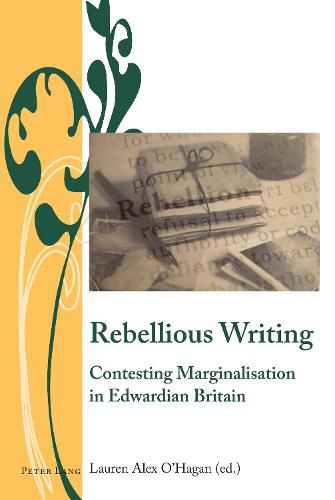Readings Newsletter
Become a Readings Member to make your shopping experience even easier.
Sign in or sign up for free!
You’re not far away from qualifying for FREE standard shipping within Australia
You’ve qualified for FREE standard shipping within Australia
The cart is loading…






This title is printed to order. This book may have been self-published. If so, we cannot guarantee the quality of the content. In the main most books will have gone through the editing process however some may not. We therefore suggest that you be aware of this before ordering this book. If in doubt check either the author or publisher’s details as we are unable to accept any returns unless they are faulty. Please contact us if you have any questions.
The Edwardian era is often romanticised as a tranquil period of garden parties and golden afternoons in which everyone knew their place and nobody questioned the order of things. The reality, however, was quite different. The years between 1901 and 1914 were a highly turbulent period of intense social conflict marked by a heightened awareness of class consciousness, inequality and poverty. The increasing mobilisation of the lower classes and women was often countered with violent means, while anybody considered to be the other - immigrants, lunatics, the poor, homosexuals - became the target of widespread discrimination. For many of these groups, the only way to fight back was through writing, which they used to voice resistance and contest traditional power structures.
This volume aims to draw attention to the importance of ordinary writing - that is, writing that is typically unseen or ignored and is primarily defined by its status as discardable - as a form of rebellion for marginalised Edwardians. Using a multidisciplinary perspective to explore a range of material artefacts, from postcards and diary entries to pamphlets and book inscriptions, it aims to unearth voices that have been silent throughout history, transmitting new narratives on such important issues as suffragism, Irish nationalism, the working-class movement and pauper insanity.
$9.00 standard shipping within Australia
FREE standard shipping within Australia for orders over $100.00
Express & International shipping calculated at checkout
This title is printed to order. This book may have been self-published. If so, we cannot guarantee the quality of the content. In the main most books will have gone through the editing process however some may not. We therefore suggest that you be aware of this before ordering this book. If in doubt check either the author or publisher’s details as we are unable to accept any returns unless they are faulty. Please contact us if you have any questions.
The Edwardian era is often romanticised as a tranquil period of garden parties and golden afternoons in which everyone knew their place and nobody questioned the order of things. The reality, however, was quite different. The years between 1901 and 1914 were a highly turbulent period of intense social conflict marked by a heightened awareness of class consciousness, inequality and poverty. The increasing mobilisation of the lower classes and women was often countered with violent means, while anybody considered to be the other - immigrants, lunatics, the poor, homosexuals - became the target of widespread discrimination. For many of these groups, the only way to fight back was through writing, which they used to voice resistance and contest traditional power structures.
This volume aims to draw attention to the importance of ordinary writing - that is, writing that is typically unseen or ignored and is primarily defined by its status as discardable - as a form of rebellion for marginalised Edwardians. Using a multidisciplinary perspective to explore a range of material artefacts, from postcards and diary entries to pamphlets and book inscriptions, it aims to unearth voices that have been silent throughout history, transmitting new narratives on such important issues as suffragism, Irish nationalism, the working-class movement and pauper insanity.